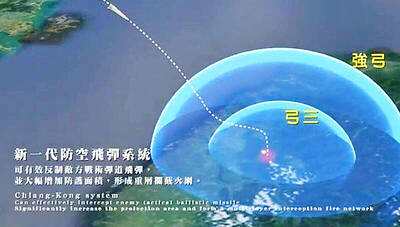US Congressional investigators plan to look into whether Yahoo officials misrepresented the US Internet company's role in the arrest of a Chinese journalist sentenced to a decade in jail.
House Foreign Affairs Chairman Tom Lantos ordered the investigation after a human rights group released a document that it said raised questions about what Yahoo knew when it shared information with authorities about Shi Tao (
"For a firm engaged in the information industry, Yahoo sure has a lot of secrecy to answer for," said Lantos, a Democrat. "We expect to learn the truth and to hold the company to account."
Yahoo general counsel Michael Callahan told US lawmakers at a hearing last year that his company had no information about the nature of the investigation when it provided details about Shi to Chinese officials, Lantos said.
But the Dui Hua Foundation, a human rights group, has released a document that allegedly shows the Beijing State Security Bureau had written Yahoo saying it wanted e-mail content about Shi for an investigation into suspected "illegal provision of state secrets to foreign entities."
Lantos said that "covering up such a despicable practice when Congress seeks an explanation is a serious offense."
Jim Cullinan, a Yahoo spokesman, expressed disappointment that Lantos "is rushing to judgment on this issue, because the facts will support Yahoo's testimony to Congress."
Regarding the police document released by Dui Hua, Cullinan said "there are many and various descriptions of what state secrets could be, including legitimate investigations into things like terrorism."
To do business with China's more than 100 million Internet users, US tech companies must satisfy a government that fiercely polices Internet content.
Filters block "objectionable" foreign Web sites; regulations ban what Beijing considers subversive content and require that service providers enforce censorship.
The document requesting information from Yahoo was translated by Dui Hua; it was posted anonymously last week on a US-based Chinese-language site, Boxun.com, said Joshua Rosenzweig, research manager at Dui Hua.
He said it "is essentially a standardized search warrant making clear that Chinese law enforcement agencies have the legal authority to collect evidence in criminal cases."
Rosenzweig said Dui Hua believes the document is authentic based on its experience with Chinese legal papers.

LIMITS: While China increases military pressure on Taiwan and expands its use of cognitive warfare, it is unwilling to target tech supply chains, the report said US and Taiwan military officials have warned that the Chinese People’s Liberation Army (PLA) could implement a blockade within “a matter of hours” and need only “minimal conversion time” prior to an attack on Taiwan, a report released on Tuesday by the US Senate’s China Economic and Security Review Commission said. “While there is no indication that China is planning an imminent attack, the United States and its allies and partners can no longer assume that a Taiwan contingency is a distant possibility for which they would have ample time to prepare,” it said. The commission made the comments in its annual

DETERMINATION: Beijing’s actions toward Tokyo have drawn international attention, but would likely bolster regional coordination and defense networks, the report said Japanese Prime Minister Sanae Takaichi’s administration is likely to prioritize security reforms and deterrence in the face of recent “hybrid” threats from China, the National Security Bureau (NSB) said. The bureau made the assessment in a written report to the Legislative Yuan ahead of an oral report and questions-and-answers session at the legislature’s Foreign Affairs and National Defense Committee tomorrow. The key points of Japan’s security reforms would be to reinforce security cooperation with the US, including enhancing defense deployment in the first island chain, pushing forward the integrated command and operations of the Japan Self-Defense Forces and US Forces Japan, as

INTERCEPTION: The 30km test ceiling shows that the CSIST is capable of producing missiles that could stop inbound missiles as they re-enter the atmosphere Recent missile tests by the Chungshan Institute of Science and Technology (CSIST) show that Taiwan’s missiles are capable of intercepting ballistic missiles as they re-enter the atmosphere and pose a significant deterrent to Chinese missile threats, former Hsiung Feng III missile development project chief engineer Chang Cheng (張誠) said yesterday. The military-affiliated institute has been conducting missile tests, believed to be related to Project Chiang Kung (強弓) at Pingtung County’s Jiupeng Military Base, with many tests deviating from past practices of setting restriction zones at “unlimited” and instead clearly stating a 30.48km range, Chang said. “Unlimited” restrictions zones for missile tests is

PUBLIC SAFETY: The nationwide distribution campaign aims to enhance society’s overall understanding of threats and bolster defense awareness, an official said The latest edition of the National Public Safety Guide is being mailed to all citizens starting today to foster public awareness of self-defense in the event of war or natural disasters, the Ministry of National Defense said yesterday. “The guides will be disseminated to the public to enhance society’s overall understanding of threats and bolster defense awareness, demonstrating the government’s emphasis on people’s safety and its determination to pursue self-defense,” All-out Defense Mobilization Agency Director Shen Wei-chih (沈威志) said at the ministry’s news conference. The nationwide distribution campaign was planned according to President Lai William’s (賴清德) Sept. 20 directive, he said, adding